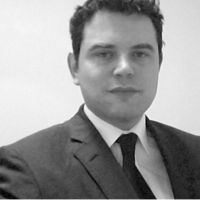Irish ask: What's the big deal about letting gays in St. Pat's parades?
| Dublin, Ireland
Irish-American communities, particularly in Boston and New York, are known for being cohesive, having a strong community spirit, and, despite tilting Democratic come election, for being socially conservative.
Back in the aul’ sod, however, they stand accused of being bigots.
Ireland’s Prime Minister Enda Kenny has come under fire for agreeing to participate New York’s annual St. Patrick’s Day parade, because it bans marchers carrying posters promoting LGBT rights.
Mr. Kenny has attempted to walk a political tightrope on the question of identity, saying: “The St. Patrick's Day parade is a parade about our Irishness and not about sexuality and I would be happy to participate in it.”
Nonetheless, a series of gay rights groups, supported by prominent campaigners and a trade union, have asked Mr. Kenny to cancel his plans to attend the “exclusionary” parade – something the city’s mayor, Bill De Blasio, has already said he will do – or at least wear a rainbow pin badge in solidarity with gay groups.
Ireland's changing attitudes
David Norris, an Irish senator and former professor, has been at the center of the Irish gay rights movement for four decades. In fact, it was his lawsuit against the country in the European Court of Human Rights that resulted in the country’s 1993 decriminalization of homosexuality.
“I find it extraordinary that Irish Americans can be so far behind the actual inhabitants of the island of Ireland; that 10 years ago the gay float won first prize in our national St. Patrick's Day Parade,” he wrote in an e-mail.
Ireland was slow to see the march of gay rights, but much changed in the last two decades. With a yes vote in this year's referendum on gay marriage considered a foregone conclusion, Ireland is drifting ever further from the Catholicism-dominated days of yore.
Mr. Norris sees the issue as being founded in a sectarian dispute. “As an Irish man who through my mother has direct descent from the ancient kings of Ossory, Leinster, and the High Kingship of Tara," he says, "I find the claiming of the parade as an exclusively Roman Catholic festival – despite being originally founded in the US by exiled Irish Protestants – completely ridiculous,” he told the Monitor.
Of course, Irish America isn’t Ireland, and has its own history and issues to parse. As reported last year, the fact that the native Irish now parade with as much gusto as Irish Americans has caused the occasional cocked eyebrow.
The Irish and Irish Americans
Back “home” in Boston, tense negotiations continue. At the time of writing, gay groups will only be allowed to march in the parade if they do not openly identify as gay. Boston Mayor Martin Walsh has said he will skip the parade if gay and lesbian groups aren’t allowed to participate under their own banners.
Larry Donnelly, a law lecturer at the National University of Ireland, says Irish-American communities often are different from the Irish in Ireland, but that times are changing in the US, too.
“If you look at the parades, I wouldn’t take the organizers as a barometer of where Irish America is. There are different shades of opinion, but there is certainly a Catholic conservative streak. Catholicism and Irishness would be closely tied together in their identity,” he says.
Mr. Donnelly, a Boston native who formerly worked as an attorney in Massachusetts, says Irish need to understand where Irish Americans are coming from, which is in part from a much more actively Catholic identity.
“Rates of participation in [Catholic] mass and sacraments are far higher in Irish America than they are in Ireland, even if they don’t toe the [church’s] line on issues like abortion and gay marriage," he says.
“The ethnic identification in Boston particularly was defined by standing up against the WASPs [white Anglo-Saxon Protestants], or against the Italian Americans. It wasn’t only the Irish who were exclusionary. I don’t think its a simply prejudicial issue. You have to understand it historically.”






